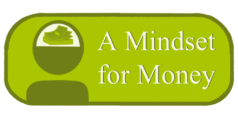
Ever Wonder?
This is your life. Have you ever wondered how it could be different, better, more enjoyable? I mean besides winning the Lotto!
What would give you more purpose? Could it be a hobby or volunteering on your days off?
Whatever you might be thinking, it will only be a dream unless you gather some facts. Perhaps, the facts will lead to more interest and research. Or you may get disgusted with the possibilities and demands. Either way, remember, learning will always be useful even if it is only for conversation around a campfire.
Where Do Ideas Come From?
The brain is an amazing thing, when we use it. The famed psychologist and author, William James, in 1907, published, in Science magazine, that humans only use a small part of their mental capacity. Somehow, later, that comment was given a value. Some have said that most of us use less than 10% of its capacity, though there is no way to verify that amount. Our minds are very active, with or without our help. The question is, are we giving it something to work on?
We all know some folks who have limited mental capacity. Most of them are mentally handicapped. You should be very sympathetic for them, since they have limited potential for change.
However, you do have potential for positive change! That is something to be thankful for and a reason to try to make better use of your brain.
In the 1950s, Steve Allen, who co-created and was the first host of The Tonight Show, impressed me a lot in an interview with him that I found in a magazine. He had written over 30 books in addition to his career in TV. In the interview, he said, “When you look for ideas, they will come so fast that they could knock you over if you let them!” He said he collected his ideas in sheet protectors and put them in three-ring binders (this was a long time ago, remember, but can still be done!). And, at that date, he had over 100 binders full of ideas!
That got me to thinking. So, I started writing down stray thoughts that came to me about things I thought I might want to write about some day.
I had to wait for retirement to go through most of my notes. However, it will take some time. I have totes full of them!
In the last fifteen years, especially, I kept blank, 3” x 5” cards in my shirt pocket. They are very useful when an idea knocks me over!
Perhaps you may not want to be a writer. Ideas are the foundation for any activity or change in your life. To that point, I read in Think and Grow Rich, by Napolean Hill, about an inventor who set aside time to “sit for ideas”. He would sit in a darkened room, with no distractions, with only a pencil and paper. He would sit until ideas came to him.
That system worked for him. It could work for you. So, make use of your quiet time and keep a pen and paper handy!
Research Your Ideas
Read, on purpose. Go to the library to ask questions of the research librarian. Look through the resources they suggest.
If you are looking for a how-to, then check out YouTube, for more information.
I cannot stress enough that you must make time for reading, to fill your mind with facts.
Your mind, your subconscious mind, will mull the information over. Perhaps, late at night or during a break at work or driving to work, you will get a report back from your subconscious mind! That is, an idea regarding what you have read and researched. It is an amazing process and one which you should consciously use!
Expand Your View of the World
I would like to suggest that you study a little geography, as well. Try to learn a little about what keeps other countries going—their economies, their main crops, and ways in which their citizens survive.
Technology has allowed interaction for people around the world. And, though you may not concern yourself with that, today, you might if you venture into business for yourself.
This is merely a suggestion, as another facet to your self-study.
Before you go there, though, you might want to focus on learning new skills to make you more marketable in the job market.
I assume you are asking yourself, “What is he talking about?”
Train for Useful
Sometimes, we need tools to do things better and faster. The same goes for learning skills to help you progress in your chosen career.
First, I learned to read faster and more efficiently with greater comprehension, by way of a class, just before starting my freshman year in college. It was a fairly simple process. There are books written about it. As part of the class, notetaking was covered to aid in getting more from lectures. All those tips greatly improved my learning experience in college. I started the class reading 186 words per minute (WPM). That is slow. At the end, I was able to read a novel (easy reading) at 900 WPM. Of course, I settled out close to 600 WPM, 3 times faster than my starting speed! At that rate, you could start the practice of reading at least 30 minutes per day, for about four days per week, and be able to read at least twelve books per year–maybe up to twenty books!
Test yourself and see what you can do to improve. I am sure the librarian can help you find a book about it!
Second, the tip related to taking notes in lectures proved very useful. To expand, they mentioned that I needed to draw a margin line on my note paper to separate stray thoughts during the lecture. Keep in mind, the professor is talking about things you have read or will read pertaining to the course subject. You need to reinforce your reading with notes about what the teacher is stressing in the lecture.
However, remember your subconscious mind activity. It never stops! I found myself being distracted by stray thoughts and ideas my subconscious mind was making me aware of. The margin notes area allowed me to write those ideas down and get back to the lecture very quickly. I could later copy those thoughts to another paper for separate storage, while reviewing my class notes. A win-win!
Third, I have read books on being organized. You cannot share a great idea with your boss if you cannot find it! Learn how to organize. It is not as simple as you might think, nor does it come naturally.
Fourth, learn to delegate. This is not always a supervisor thing. That principle will help in your family, as well. Again, it sounds simpler than you might expect. We must get past our thinking that “no one can do it as well as me”. Learn that and you can save time and be more efficient and teach your children, as well! Yes, you can read about that, too!
Read, read, read. Train for useful!
